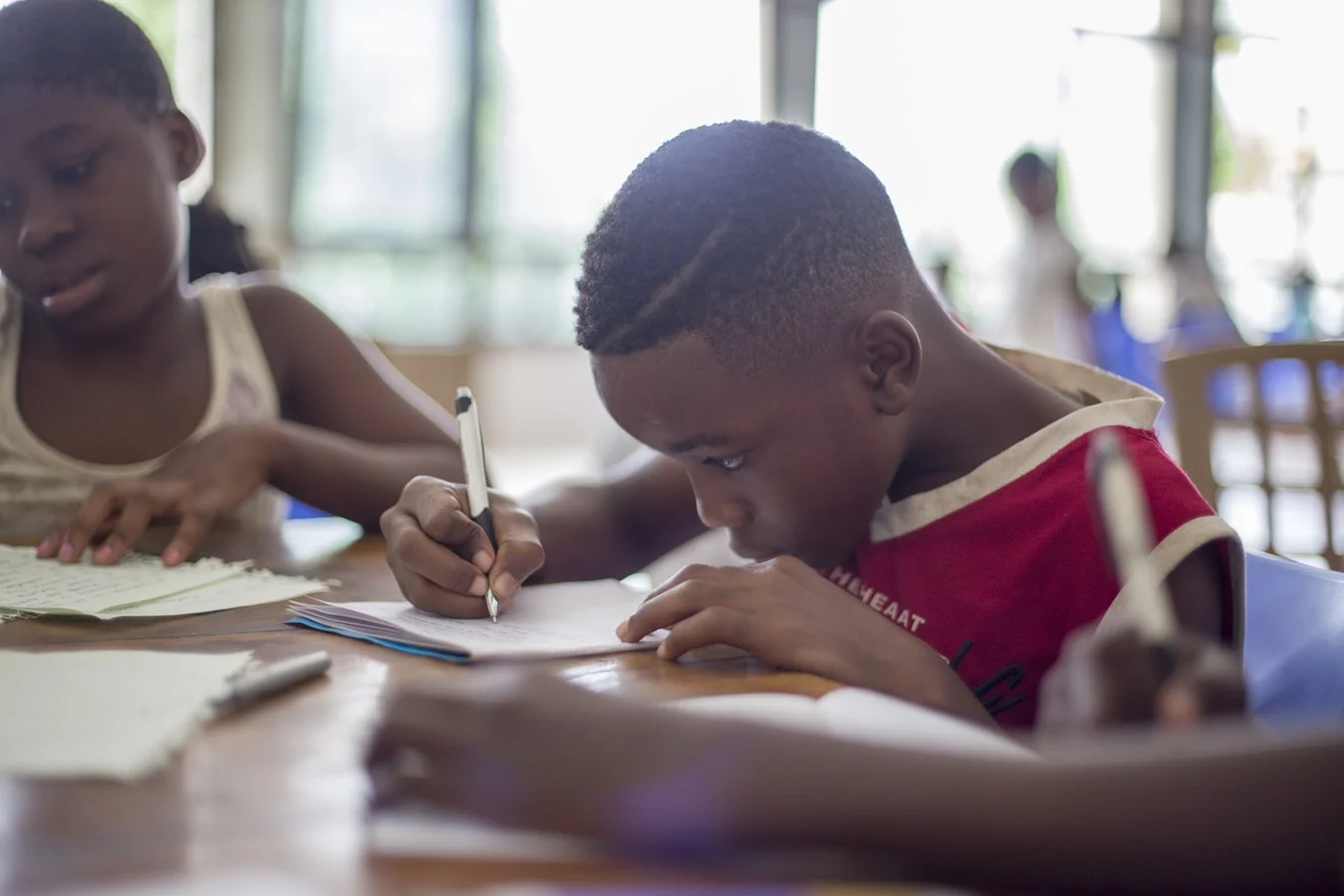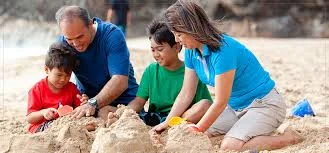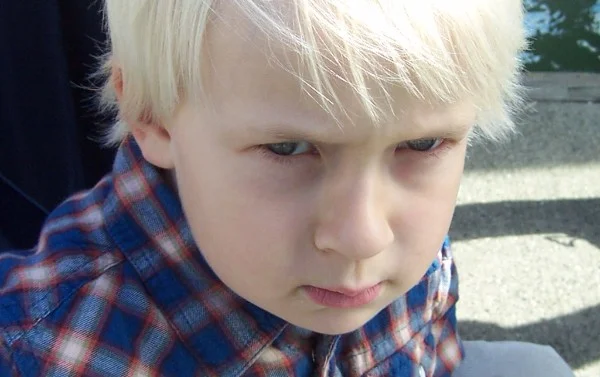Once the shine of the new school year wears off, it is time to settle into the routine of school. Here are steps for helping your child figure out how to handle the homework the teacher’s give her. Aid her in problem solving but recognize that if you tell your child how and when to do her homework, chances are it won’t work. At this stage, it is more important to help her develop her own tools for managing her work.
Read MoreIn talking to parents this summer, one of the comments I have heard a lot is some theme or variation on how much better the children’s behavior is during the summer compared to the school year. In other words, children who have enough downtime and sleep and fewer demands put on them, are more likely to cheerfully and cooperatively engage in family life.
Children will be happier, healthier and more ready to learn with less hectic schedules and fewer demands put upon them. READ ON for some ways to create that for your kids.
Read MoreAs there is more and more artificial intelligence (AI) in the world, there is more need than ever for little humans to learn Emotional Intelligence. Play is a tremendous vehicle for one’s own and others’ emotions. Being able to relate emotionally allows kids to function in school more effectively and therefore to be more ready for learning.
Read MoreAll parents want their kids to be smart. To support their children’s development they have enrolled their kids in more and more extra curricular activities. The irony is that these activities take up kids’ play time, and parents are grossly undervaluing the benefit of play to children’s cognitive development. You might be surprised by some of the ways that play builds both perception and critical thinking skills.
Read MoreYou've Got the ABC's Covered and the 123's Down. But Increasingly, research shows the importance of Emotional Intelligence--and you are the person best suited to teaching it.
Emotional intelligence is being able to recognize a wide range of nuanced emotions, and recognizing them, being able to regulate them and put them in perspective in a way that helps the individual move through life more easily.
In my long experience in working with children, emotional intelligence can absolutely be developed. The most important way in which it is developed is through interactions with thoughtful adults who are modeling and guiding kids in dealing with their feelings.
This blog shares some common behaviors of parents whose kids display emotional intelligence.
AND IF YOU ARE CURIOUS ABOUT HOW TO BOOST YOUR OWN EQ, CHECK OUT THIS BLOG ON "How can we use NLP to build Emotional Intelligence?"
Read MoreIs it potato chips and soda making kids obese? Maybe not! While a healthy diet is important, of course, new research by Dr. Asheley Cockerel Skinner of the University of North Carolina (Chapel Hill) finds that “it is becoming increasingly obvious that the lack of physical exercise in children is the main culprit in the startling rise of childhood obesity, heart disease, diabetes, and all other types of preventable medical conditions.”
If you are sick of nagging and arguing about it, here are some sneaky ways to assure your kids move their bodies without focusing on it being “exercise.”
Read MoreAt the end of the day, family is about being together and feeling like a connected unit. With very little time in the week left over for parenting and family time, it is essential to be deliberate about the choices you make for your family--both by protecting the time you do have together and by making sure that time is quality time. Here are some tips on how to do that.
Read MoreHave you heard the cry of,
OMG, YOU ARE SO EMBARRASSING!
Has your young teen shifted from skipping down the street holding your hand to acting as if you have the plague? Such behavior is so teen-movie, situational-sitcom cliché we almost don't fully expect it to happen to us. But if your child is developing normally and as he needs to do, he will have that moment when he acts as if you are an alien creature he has never seen before.
Your frontal cortex is fully formed: You have the big picture and long-term perspective. That makes it your job to keep calm and parent on. Repeating the mantra, This is a stage, it will pass, and it has nothing to do with me personally, it will help.
Read MoreA client called frustrated because she had offered her 7th grader a bribe to do something she really wanted him to do that he was digging his heels in on, and now he was demanding that she give him something every time she asked him to do anything at all. That's a problem!
Read MoreIsn’t that the truth! Parenting gets so exponentially harder when we are in a hurry or are tired. That’s why I’m such a big believer in creating systems and routines for as much of the day as we can. When we have good systems and routines to fall back on, we can let habit lead us.
Read MoreKnowing our kids are happy at school allows us to drop them off with confidence and get on with our day. When our child refuses to go to school, then we are filled with doubt and insecurity and our hands feel tied, knowing it is not as simple as changing schools or teachers. What can you do to help your child feel good about his teacher?
11 teen suicides in 9 years. In one community. In my community.
How does that happen? Your first answer might be to blame the parents. Where were they? Didn't they know they were putting too much pressure on their son? Why didn't they do something?
But it's not that simple.
Sure, it is your job to protect your children? But are you being too over protective? And if you are, what is the cost of that to both your younger kids and to teens? And what can you do about being overprotective?
Read MoreEven many adults don't learn the skill of having difficult conversations effectively. Most people just want everyone else to be happy. Certainly, no one modeled for me how to stay present even when conversations got uncomfortable. It was so much easier to just give up or give in. Now, of course, there are times when going with the flow is the name of the game, but if you want your kids to learn the balance between keeping the peace and learning to advocate for themselves in a constructive way, they are going to learn that much sooner if you teach it to them explicitly.
Read MoreMost parents understand and are comfortable with this when it comes to safety. Your two year old may want to climb the wobbly ladder by himself but you know that the risk is too great, so you offer a compromise--she may climb it with you hanging on to him tightly or she may climb her toy slide by herself. He may not use the big knife to cut onions but he may use the plastic knife to cut bananas or to spread butter.
Read MoreThere are many reasons to give kids chores (To see a comprehensive list, go HERE. Kids like to feel needed and capable. Chores help with both. When parents set up chores as “In our family we help each other,” kids see their work as being an important part of being a member of the family. Plus, kids like knowing they are able to do things on their own. They like being able to know that they were the one who made the living room sparkle or who saw to it that every family member had a sandwich ready to take in his lunch. When all the family members are contributing, it frees up time for family fun, and parents are less stressed. Parents have to get themselves ready for work. If the kids are making lunch for everyone while Mom and Dad are getting breakfast on the table, families end up having a few minutes to sit down and start the day together.
Read MoreThe first question to ask yourself, when considering how to keep your teen from rebelling, is what am I doing to help foster my kid’s independence and sense of autonomy?
Read MoreWhat are some bad sleep habits elementary school, tweens and teens have?
•Having their phones in their rooms with them. Yes, a smart phone makes a good alarm, but not if kids are texting and checking social media all night, so better to get your child a conventional alarm clock.
•Going fully speed ahead right up until bed time. People need wind down time. Just as when they were babies or toddlers, kids should have a routine that calms and soothes.
•Varying their bedtimes by a lot. While the occasional late night can’t be avoided, sleep experts agree going to bed at around the same time every night is helpful.
•Trying to make up for lost sleep during the week by sleeping until noon on Saturday.
Read MoreA recent Quora question was how do we teach our children priorities. The answer is simple. Every time you make a choice, you are teaching your child your priorities.
You are in the middle of cooking dinner, and your child demands that you stop what you are doing and come see this marvelous bug that he is looking at.
If you turn off the stove and go look, you are prioritizing curiosity, discovery, enthusiasm and in-the-moment excitement.
Read MoreBoth as a teacher and as a camp counselor, I have dealt with plenty of separation anxiety in older kids.
In early elementary kids, it is still common to have a transition period as a child enters a new classroom. Even if the child was perfectly happy in the classroom next door the year before, he may spend the first couple of weeks crying in his new classroom. Intellectually, he knows he was happy the year before and will probably be happy again, but in between then and now, he has spent a lovely, long summer in the bosom of his family. For him separation anxiety is wrapped up in feeling uncomfortable with a new routine. Once he has cycled through the weekly schedule a couple of times and feels he knows his teacher, he is fine.





















